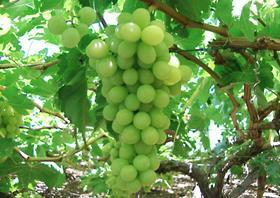
For the early South African table grape regions, the harvesting and packing season is over, with attention now shifting to dealing with what is by all accounts a very difficult marketing season.
To add insult to injury, South Africa experienced rolling electricity blackouts again this week as the national electricity supplier Eskom moved into a further period of crisis. Granted, most grape packhouses now have their own generators and can minimise disruption. However, these disruptions are affecting business activities throughout the value chain.
South African grape marketers who attend Fruit Logistica last week returned home under no illusion that it will be some time before the marketing of early season southern African grapes comes to an end.
This week SATI kept the overall forecast unchanged at between 63.2 and 70.1 million cartons. The export figure to date is about 800,000 cartons more than last year, but almost six million cartons behind the 2017-18 season when a total of 62m cartons was finally exported.
The Northern regions exceeded last year’s export volume and will end around seven million cartons. The Orange River was around 300,000 cartons short on last season and 18.5m cartons were finally exported. The Olifants River Region failed to recover from the drought that dominated the region last year. It exported around two million cartons compared with last year’s 2.3m and well short of the previous year’s 3.2m cartons.
The question is now whether the last two regions, the Berg River Valley and the Hex River Valley, will push the crop to the upper levels of SATI’s estimate.
Whether they do so or not, the season will be remembered as one of tough markets, mostly as a result of events elsewhere in the world. The South African grape quality is excellent this year and cannot be blamed for market failure.
Alwyn Dippenaar of Dippernaar Choice Fruit in the Orange River said marketing conditions are tough with volumes of early-season Namibian grapes still in cold stores in Europe. Veteran Hex River grower Anton Viljoen admitted that markets were bad and that growers will have to be conservative with their price expectations.



